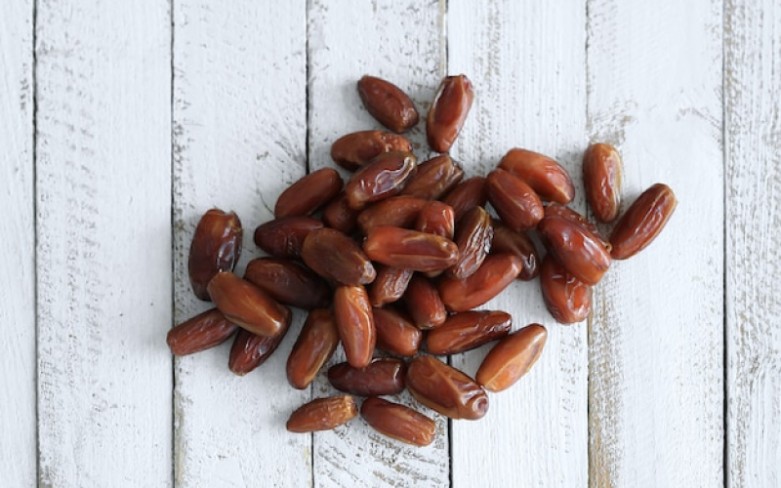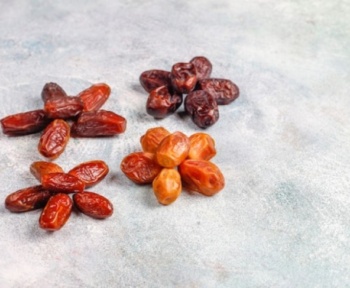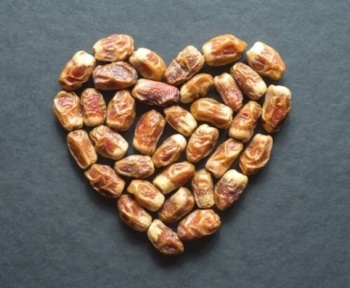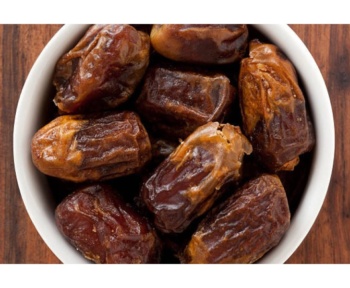Introduction
Dried dates are a tasty little snack that many people love to enjoy. They’re sweet, chewy, and perfect for a quick energy boost. But if you’re managing diabetes, you might wonder whether dried dates are safe for your diet. Can you eat them without messing with your blood sugar? Are they healthy, or should you stay away from them? Let’s dig into the benefits and risks of dried dates to give you the info you need to make an informed choice.
What is Diabetes, and How Does It Affect Your Diet?
Diabetes is a condition that affects how your body handles sugar. It either can’t produce enough insulin (Type 1) or it can’t use insulin properly (Type 2). Insulin is the hormone that helps your body process sugar. Without it working right, blood sugar levels can get out of hand. That’s why food choices are crucial for people with diabetes.
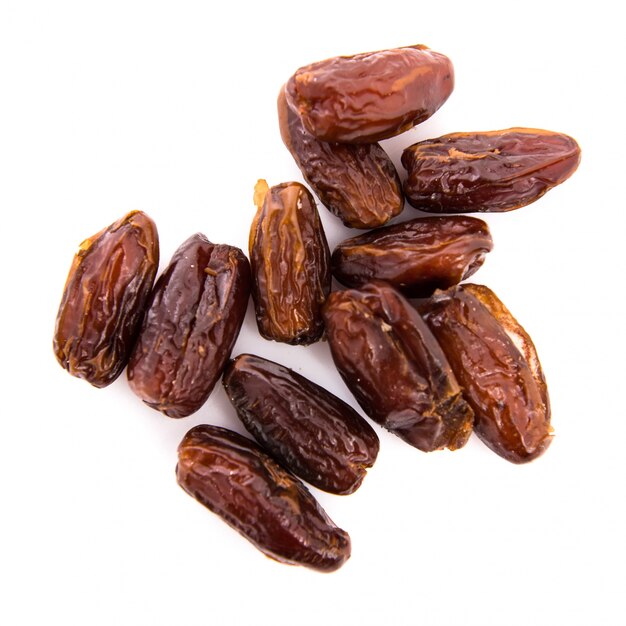
Why Diet Matters for Diabetics
Your diet dramatically impacts how well you can manage your blood sugar. Some foods cause it to spike quickly, while others release sugar more slowly. For anyone with diabetes, the trick is to eat foods that keep blood sugar steady. It’s all about making smart choices, even when those cravings hit!
What Are Dried Dates?
Dried dates are just fresh dates that have had their moisture removed, making them sweet and extra chewy. They’re more concentrated in sugar and calories than fresh dates, so they taste rich and satisfying. But because of that, it’s essential to know what you’re getting into when you eat them. So, what’s actually inside a dried date?
What’s Inside a Dried Date?
Dried dates are packed with potassium, magnesium, and fiber – the good stuff. They’re also high in antioxidants, which are great for reducing inflammation. But here’s the kicker: they’re loaded with sugar, so moderation is key. Even though they have plenty of health benefits, too many could spike your blood sugar faster than you’d like.
Table 1: Nutritional Breakdown of Dried Dates (Per 100g)

Health Benefits of Dried Dates for Diabetics
Packed with Fiber
One of the great things about dried dates is that they’re full of fiber. Fiber helps slow down the absorption of sugar into your bloodstream, meaning it won’t cause that sudden sugar crash you want to avoid. Plus, fiber helps keep you feeling full, which can help with portion control and overall weight management. We all know that feeling of hunger creeping in an hour after a snack—fiber helps fight that.
Rich in Antioxidants
Dried dates contain antioxidants like flavonoids and carotenoids, which protect your cells from damage. This is especially important for people with diabetes, as they have a higher risk of developing complications like heart disease and nerve damage. So, those antioxidants in dates could be doing more than just satisfying your sweet tooth—they’re also working to keep you healthy in the long run.
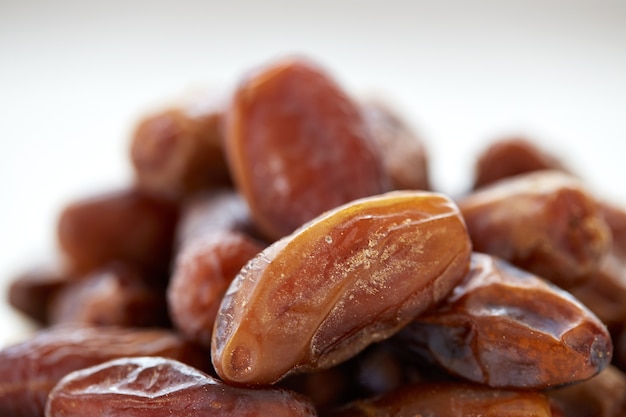
Moderate Glycemic Index
Regarding blood sugar, the glycemic index (GI) matters. The GI measures how quickly a food raises blood sugar compared to glucose. Foods with a lower GI are better for maintaining steady blood sugar levels. Dried dates have a moderate GI, so while they won’t send your blood sugar soaring like some foods, they can still cause a little spike if you eat too many. But, with the fiber content, the effect isn’t as intense as other sugary foods.
Table 2: Glycemic Index of Common Foods

As you can see, dried dates are on the moderate end of the scale, meaning they won’t cause that dreaded sugar rush. But remember, everything in moderation!
The Risks of Eating Dried Dates for Diabetics
High Sugar Content
Let’s face it: dried dates are packed with sugar. Even though they’re full of nutrients, they can mess with your blood sugar if you go overboard. This doesn’t mean you can’t eat them, but eating more is easier than you think when they’re so small and sweet. So, portion control is super important.
Overeating Dates
Because dried dates are so chewy and sweet, they can be addictive. It’s easy to eat a handful and not realize how many you’ve had until it’s too late. But eating too many dates can lead to a blood sugar spike. It’s like that moment when you reach into the bag of chips, and suddenly, you’ve eaten half the bag—you don’t want to do that with dates. Keep it to a reasonable portion, and you’ll be fine.
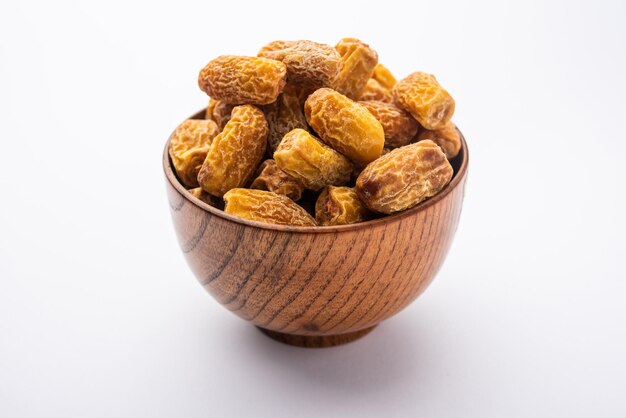
Effect on Insulin Sensitivity
While dates have a lot of health benefits, eating them in large quantities could affect your insulin sensitivity over time. Insulin sensitivity is how well your body responds to insulin. If it’s impaired, blood sugar levels can be harder to control. So, be mindful of how much you’re consuming. Pairing dates with other foods that help stabilize blood sugar can make a big difference.
Checklist: How to Eat Dried Dates Safely with Diabetes
- Limit portions to 2-3 dates at a time.
- Pair them with healthy fats or protein to slow sugar absorption.
- Avoid eating dates alone—especially on an empty stomach.
- Monitor your blood sugar levels regularly to see how they affect you.
How to Include Dried Dates in a Diabetic Diet
Control Your Portions
Dried dates can fit into a diabetic-friendly diet, but controlling portions is key. It’s easy to go overboard since they’re dense in calories and sugar. Stick to 2-3 dates as a snack, and you’ll get all the benefits without the risks.
Table 3: Serving Size and Nutritional Information for Dried Dates

Pair Dates with Other Foods
Eating dates alongside other foods that help regulate blood sugar is a good strategy. For example, pair them with a handful of nuts, a few cheese slices, or some avocado. These foods are made of healthy fats and protein, which help slow down the absorption of sugar. So, you’ll get the sweetness of dates without the sharp rise in blood sugar.
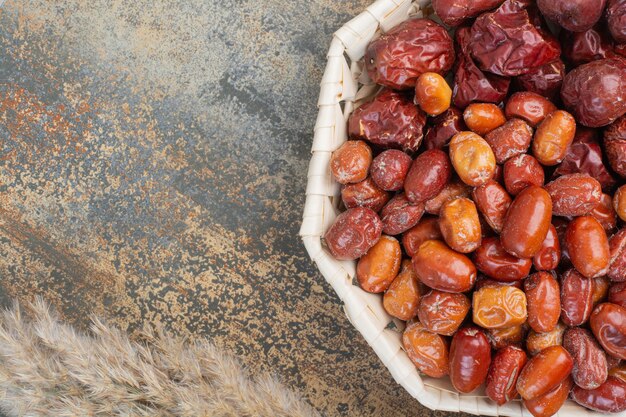
Best Ways to Eat Dried Dates
- Blend them into smoothies with spinach, almond milk, and chia seeds for a nutrient-packed drink.
- Toss them into salads with leafy greens, grilled chicken, and olive oil.
- Snack on dates with a handful of almonds or some cheese for a balanced treat.
Expert Insights: A Nutritionist’s Opinion on Dried Dates
Sarah White, a registered nutritionist, says, “Dried dates can be a healthy part of a diabetic diet when eaten in moderation. They provide fiber, antioxidants, and essential nutrients. Just be mindful of portion sizes and pair them with other foods to avoid blood sugar spikes.”
Conclusion
Dried dates can be a healthy addition to a diabetic diet if enjoyed in moderation. They’re rich in fiber and antioxidants, and they offer a lot of health benefits. However, they’re also high in sugar, so controlling your portion sizes is essential. As long as you pair them with other foods that help stabilize blood sugar, you can enjoy dates without worrying about your blood sugar levels.
FAQs
Sure, but keep it in moderation. Dried dates can be part of your diet, but eating 2 to 3 dates at a time is a safe bet. Just keep an eye on your blood sugar.
Dried dates have more sugar and calories than fresh dates, so they might not be the best choice if you closely monitor your sugar intake. Fresh dates are a bit lighter, but both can be enjoyed in small amounts.
Dates themselves won’t lower blood sugar, but their fiber content helps slow the absorption of sugar into the bloodstream. This can help keep blood sugar more stable.
Consider prunes, raisins, or apricots if you’re looking for something different. Check the sugar content and go easy on them if you’re watching your blood sugar.


